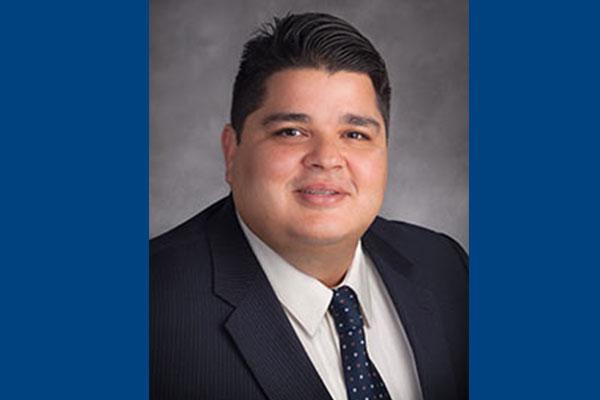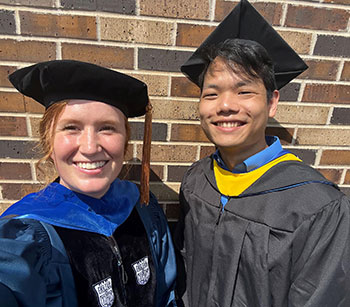
Everardo Macias, PhD, led a study with two recent Duke School of Medicine graduates that suggests a therapy with the potential to reduce the toxicity of some current breast cancer therapies, and slow the growth of tumors.
Macias was the senior author of a paper he co-authored with graduates Peter Nam and Amelia Schirmer that was published in the journal Cancers on May 18th, 2023, titled “Targeting the Divergent Roles of STK3 Inhibits Breast Cancer Cell Growth and Opposes Doxorubicin-Induced Cardiotoxicity In Vitro.”
Breast cancer (BCa) is the most prevalent type of cancer in women, commonly treated by chemotherapy and chemotherapeutic drugs, which increase the risk of cardiotoxic damage. As mature hearts have a limited regenerative capacity, chemotherapy-induced cardiotoxicity poses a major challenge to patient outcomes.
The Macias Lab study suggests that Serine/Threonine Kinase 3 (STK3) inhibition can both slow BCa growth and protect against cardiovascular damage from chemotherapy. STK3 (aka MST2) is an essential component of the highly conversed Hippo Tumor Suppressor pathway, which regulates cell growth and proliferation by inhibiting YAP/TAZ co-transcription factors. According to this model, STK3 suppresses tumors and should restrict BCa growth. However, the Macias Lab found it is frequently amplified in BCa and correlates with worse patient outcomes.
Macias Lab developed small molecule inhibitors to target STK3 genetically and chemically, which slow BCa growth and invasion. While there are many follow-up studies to be conducted, this study puts forth STK3 as a tractable target that has high potential to benefit BCa patients.
Nam earned a Bachelor of Science degree in Biology with distinction as an undergraduate student with Macias for three years, and Schirmer completed four years in the PhD Graduate Program.
